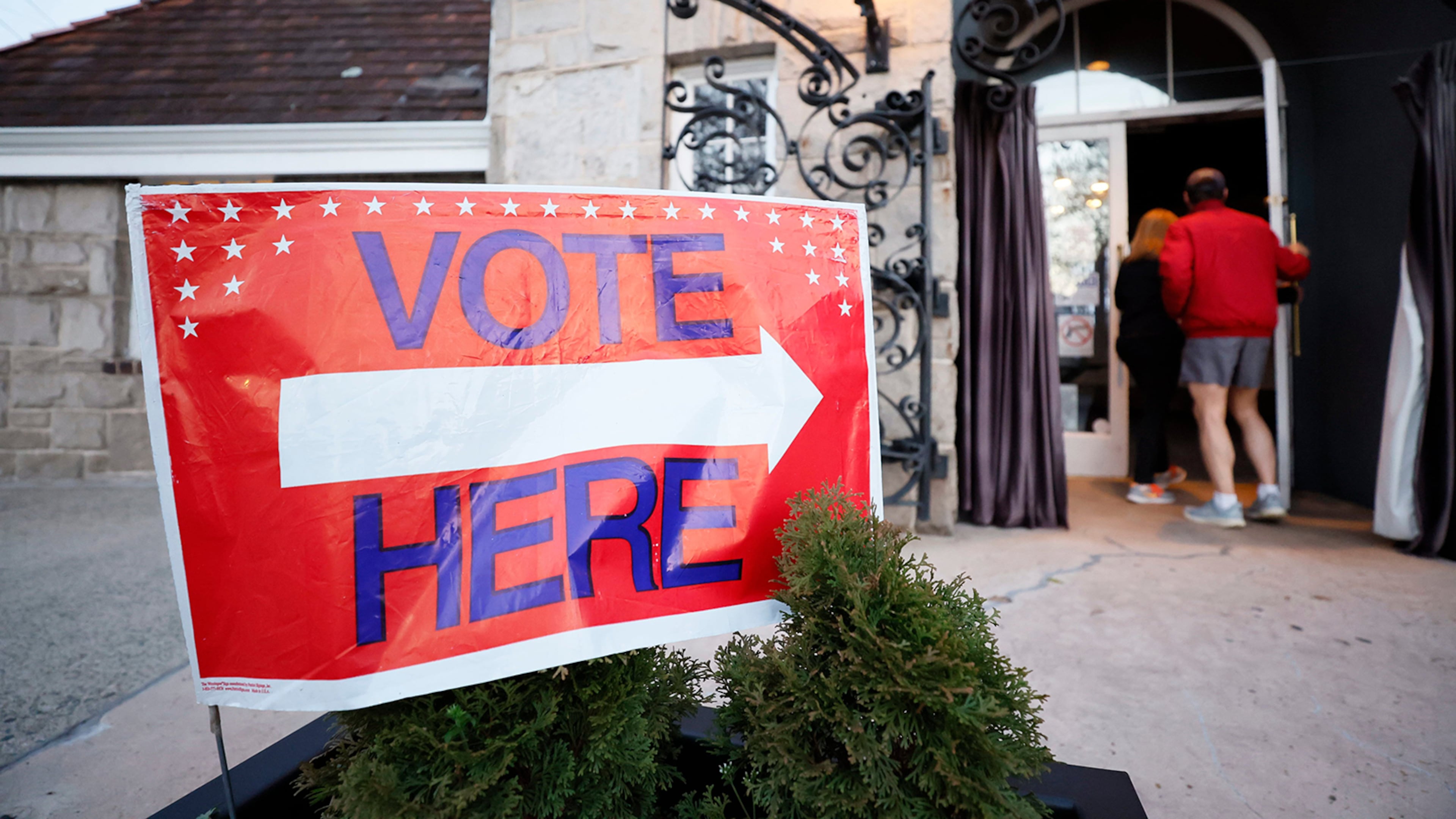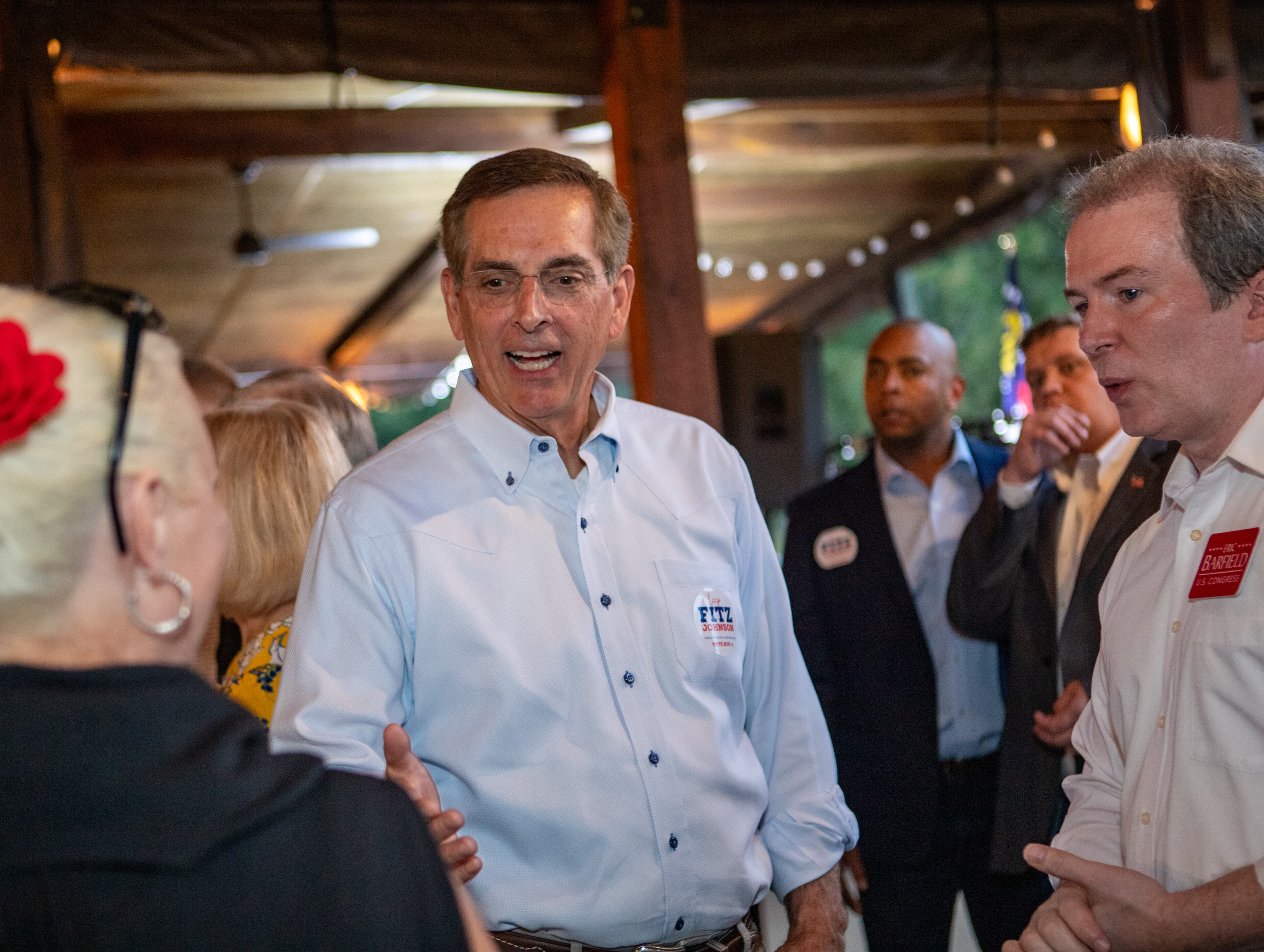Georgia judge rejects ‘mysterious’ GOP loyalty tests

A Georgia judge issued a blistering takedown of a rural county GOP committee that tried to impose a “mysterious Star Chamber-like” process to block candidates from qualifying to run as Republicans based on ideological tests.
The 33-page ruling Friday dismantles the Catoosa County GOP’s attempt to bar four Republicans from seeking local office — and it hints at the legal perils awaiting far-right leaders pushing similar loyalty tests across Georgia.
That includes the Georgia GOP activists who earlier this year sought to prevent Secretary of State Brad Raffensperger from qualifying for governor on the GOP ticket in 2026.
Superior Court Judge David K. Smith didn’t mince words on the Catoosa GOP’s “qualifying affidavit” that forced would-be candidates to interview before a committee of 16 insiders who then decided behind closed doors whether they were conservative enough to run.
Smith ruled that the county GOP acted unlawfully, defied multiple court orders and tried to replace Georgia’s straightforward, state-defined candidate oath with a subjective internal approval system.
“The court is convinced that there were no answers that these candidates could have possibly given the county committee that would have resulted in a (secret) vote to allow them on the ballot,” Smith wrote.

“The candidates may as well have been handed a copy of the Seven Bridges of Konigsberg mathematical problem at the door and told they must solve it to get on the ballot.”
The court not only permanently banned the practice, it also ruled that local party officers acted in willful contempt of earlier orders and may be required to pay attorney’s fees for expanding the litigation.
“These do not sound like people guilty of intruding with adverse political principles,” he wrote. “Rather, they sound like people who had ticked off at least nine of their neighbors on the all-powerful Party Committee.”
A proxy fight
In much of rural Georgia, the Republican primary is the election. Catoosa County is no exception. Donald Trump won 78% of the vote there in 2024.
That means controlling who can get on the GOP primary ballot is, effectively, controlling who can hold power.
The Catoosa case was a test version of a broader push by hard-line activists aligned with the Georgia Republican Assembly, a group that has targeted GOP incumbents — including Gov. Brian Kemp and Raffensperger — as insufficiently loyal to Trump.
In 2023, the faction tried to pass statewide party rules that could allow GOP convention delegates to block candidates from qualifying unless they met ideological criteria.
That proposal was defeated after warnings that it would shift power from voters to party gatekeepers.
Earlier this year, the faction helped pass a resolution at the state Republican Party convention seeking to block Raffensperger from qualifying on the GOP ticket and to “fully defend against any future litigation or legal action” taken by his team.
That appeared to be mostly symbolic, as Georgia Republican chair Josh McKoon said the party intends to follow state law that requires it to qualify contenders who meet “procedural rules.”

“I said throughout the campaign that I would not purchase a lawsuit by refusing to qualify people that meet the legal standard set forth in Georgia law,” McKoon said.
But in counties like Catoosa, activists tried a local workaround. The party tried to block four county commission candidates — including three Republicans who had won seats under the GOP banner.
After a state judge ordered the county’s election board to allow the four to qualify, the Catoosa GOP filed lawsuits in state and federal court to challenge the decision.
Friday’s ruling dealt a blow to that experiment. Smith called the ongoing fight an “unnecessary shame.”
“The General Assembly of the State of Georgia crafted a twelve-word loyalty oath for all prospective candidates to sign as part of the qualifying process,” he wrote.
“The Catoosa Republican Party took that requirement and blew it up with a vengeance never intended by Georgia statutory or case law.”



